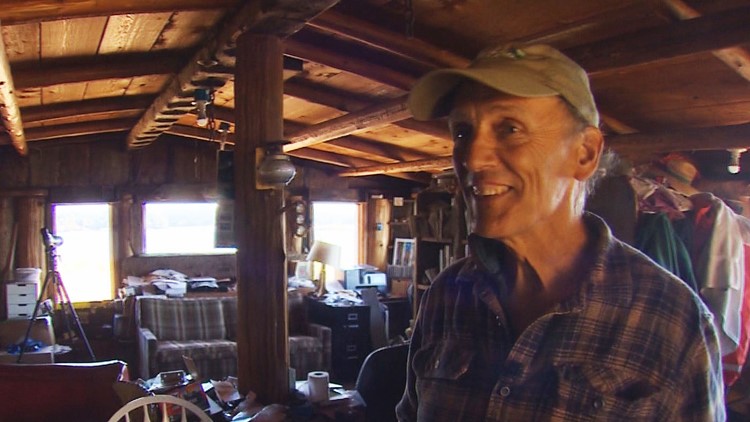Yellow Island has just one resident: Phil Green. He lives by himself in the only house on the small island in the San Juan Islands. Soon, life will change dramatically for Green.
Green's 19-year long solitary journey is about to end when he retires from his position as a naturalist for The Nature Conservancy.
To visit him, the trip starts with a ferry ride to Orcas Island. Once the crowds shuttled off in their cars, we spotted Green beside his small "work vehicle," a boat he uses to commute from Yellow Island to Orcas for food or laundry.
"Ok, come on aboard," he said.
The closer we get to Green's office, the smaller the boat. We transfer into a row boat once we can't take the motored vessel any further.
Luckily, there's no rush hour out here.
"It's not your average commute," Green said.
The Nature Conservancy bought the 11-acre island to protect and study its habitat. It's Green's day job and his night job.
"This structure on the beach is actually my shower. It's the only hot running water on the island. It's functional during the non-freezing months," he said.
The cabin Green calls home was built in the 1940s. The wood is bleaching from the sun and the door looks like it was taken off the set of Lord of the Rings. It's the only cabin on Yellow Island and Green is the only resident.
"This is home sweet home. This is where I live," he said.
For nearly two decades, Green has stared out the solitary windows overlooking Puget Sound, drinking coffee and reading books to pass the time.
But it's not what he does with his eyes that makes his job unique. It's what he does with his ears.
"I just come over and sit down, take the head phones, put on the head phones. Power up and we are set," he said, starting his audio recorder.
Every morning at 4 a.m. when there's no sun or sound of humans, Green sits and listens. He records whatever is awake and shares it with audiences around the world.
Recently, he heard something that caught his attention.
"You hear this woosh. What was that? The first one, then there was another whoosh! I knew because I've heard it enough, it was orcas breathing," he said.
Orcas have become more like visiting family for the man who lives all alone.
"It's just a phenomenal thing. You never stop getting excited about seeing whales," he said.
Orcas stick together for their entire lives, and that's why the man who lives all by himself feels a bond with the whales who never live alone. They teach us we all need each other, he says.
After all, even someone who listens for a living isn't perfect.
"I've got hearing aids in," he laughed.
Soon, Green will hear new sounds as he retires and moves off his lone island back to civilization. But he'll never forget the lesson he learned in the quiet of solitude. It's a lesson he's tried to teach others, simply by listening to the sounds of birds and whales and whatever else migrate past his wooden abode.
That we're never really alone – ever, at all.
"This is what is keeping us alive, this ecosystem. People need to realize it's a package deal," he said. "Just have that experience with the natural world and realize that it's worth saving."



